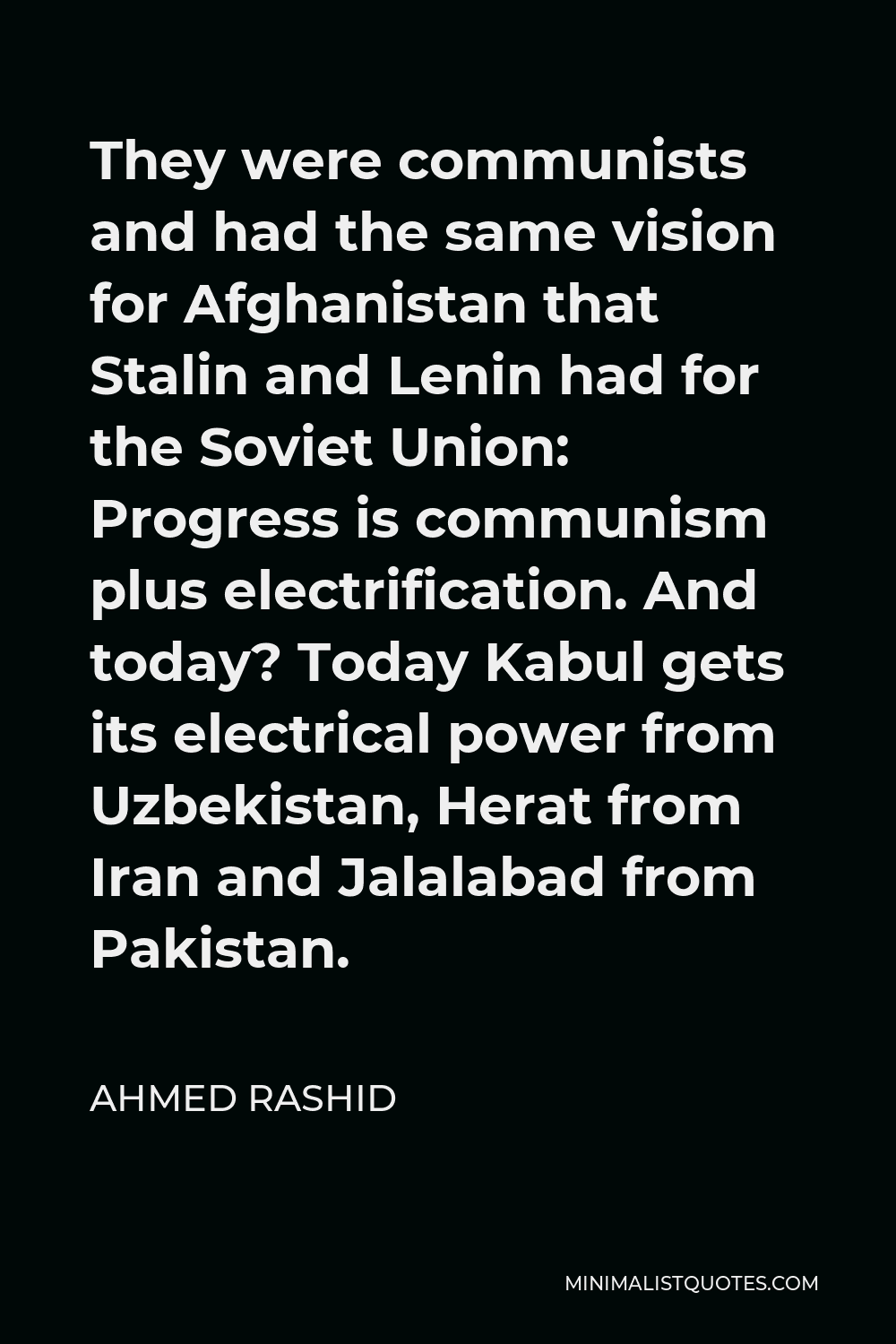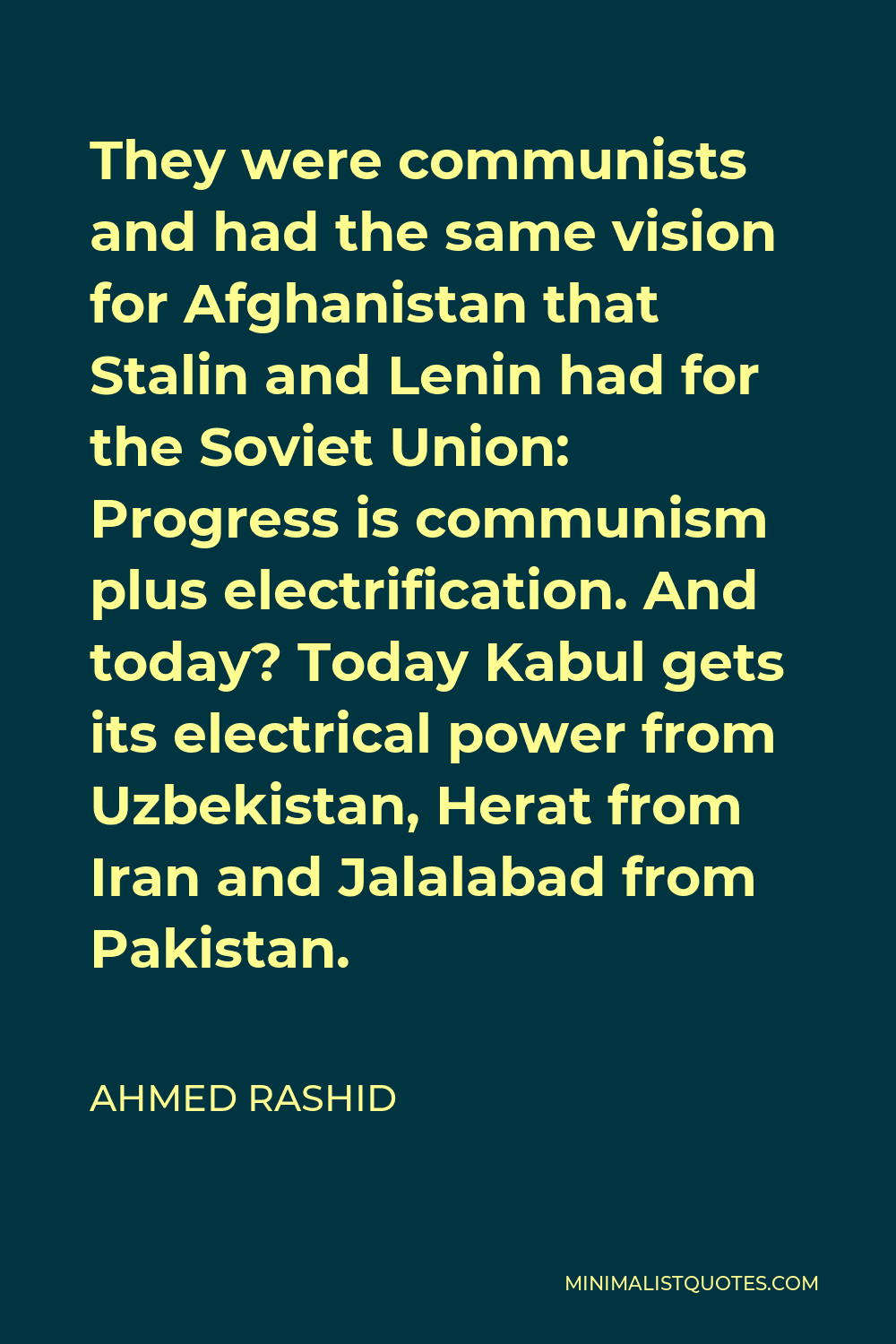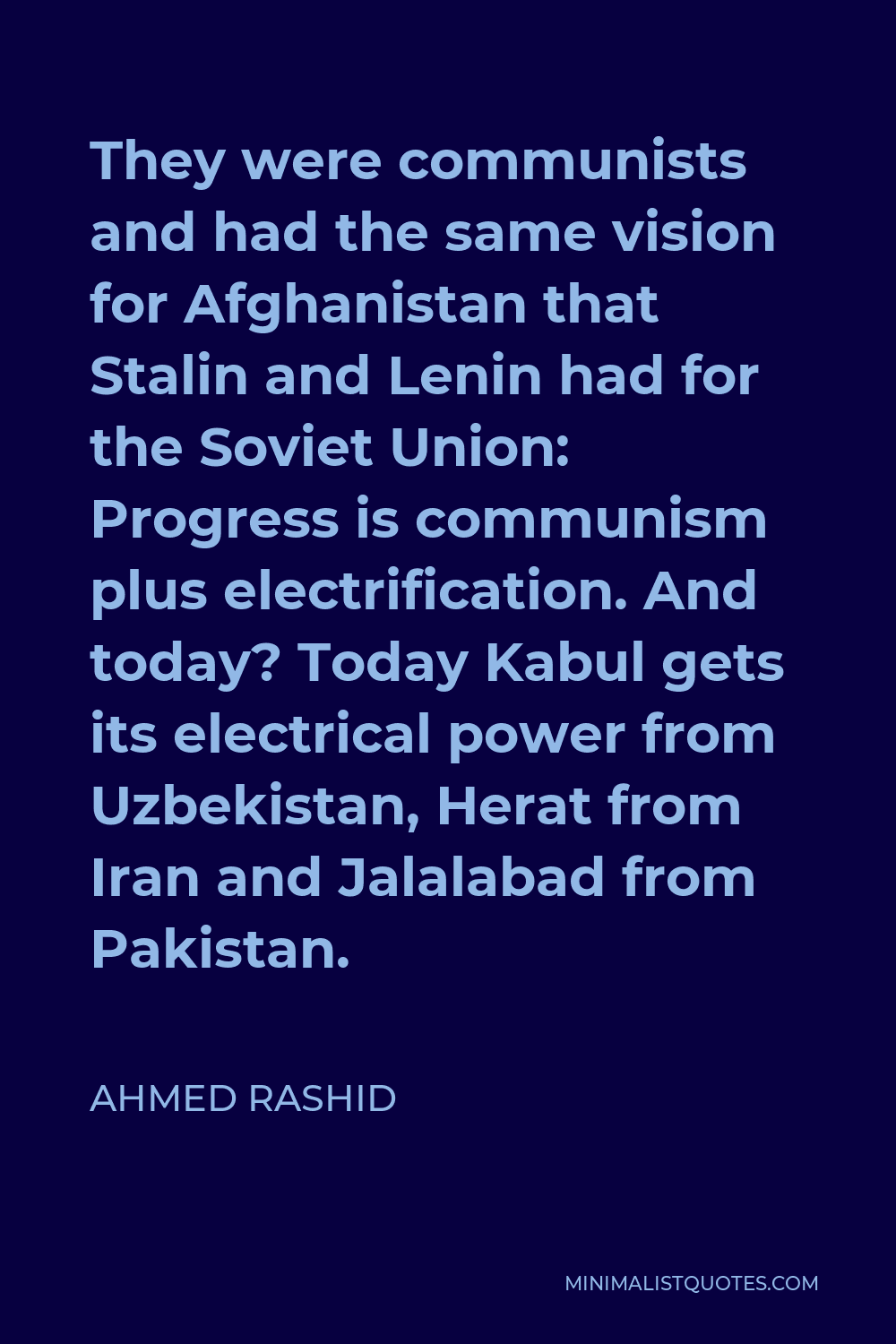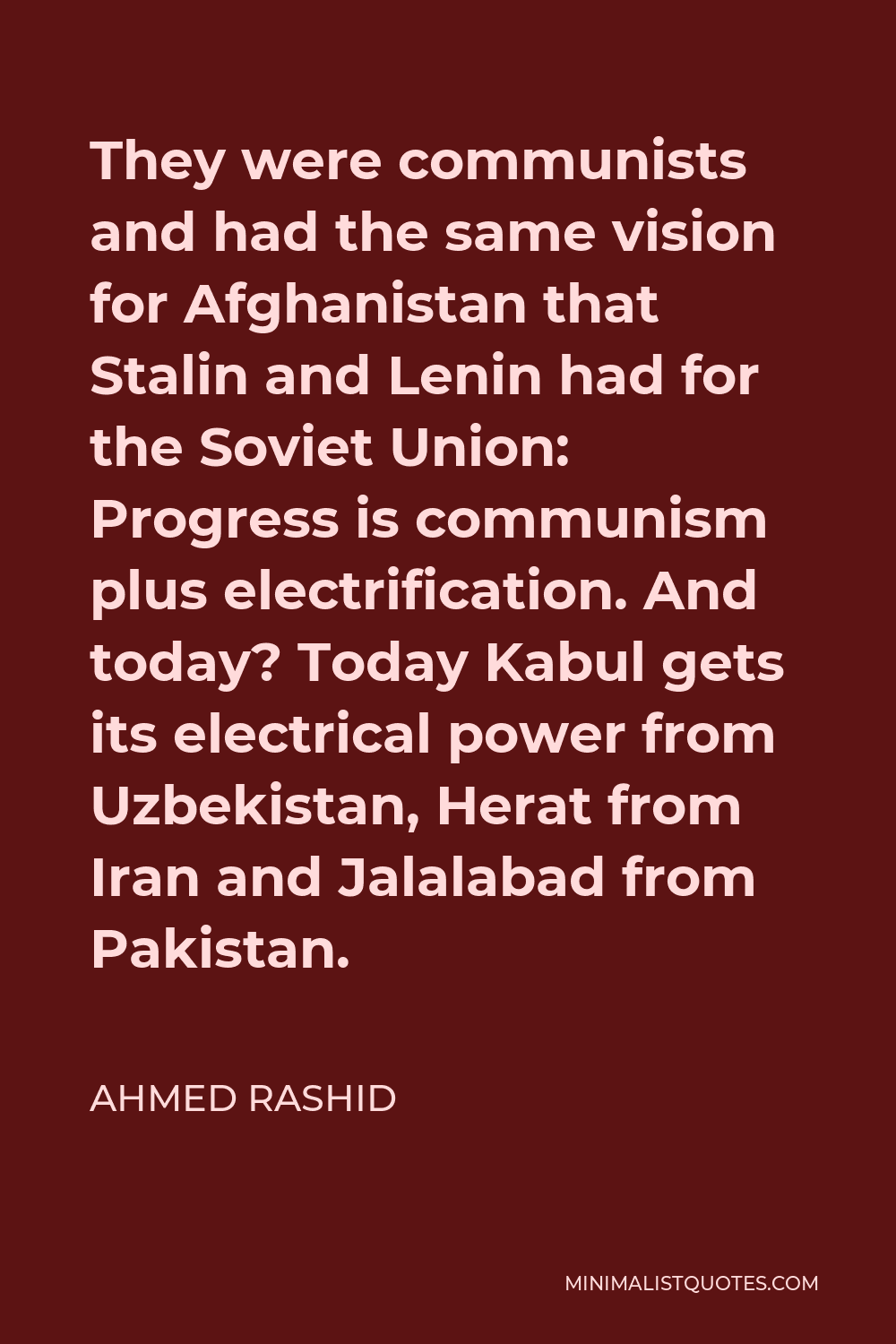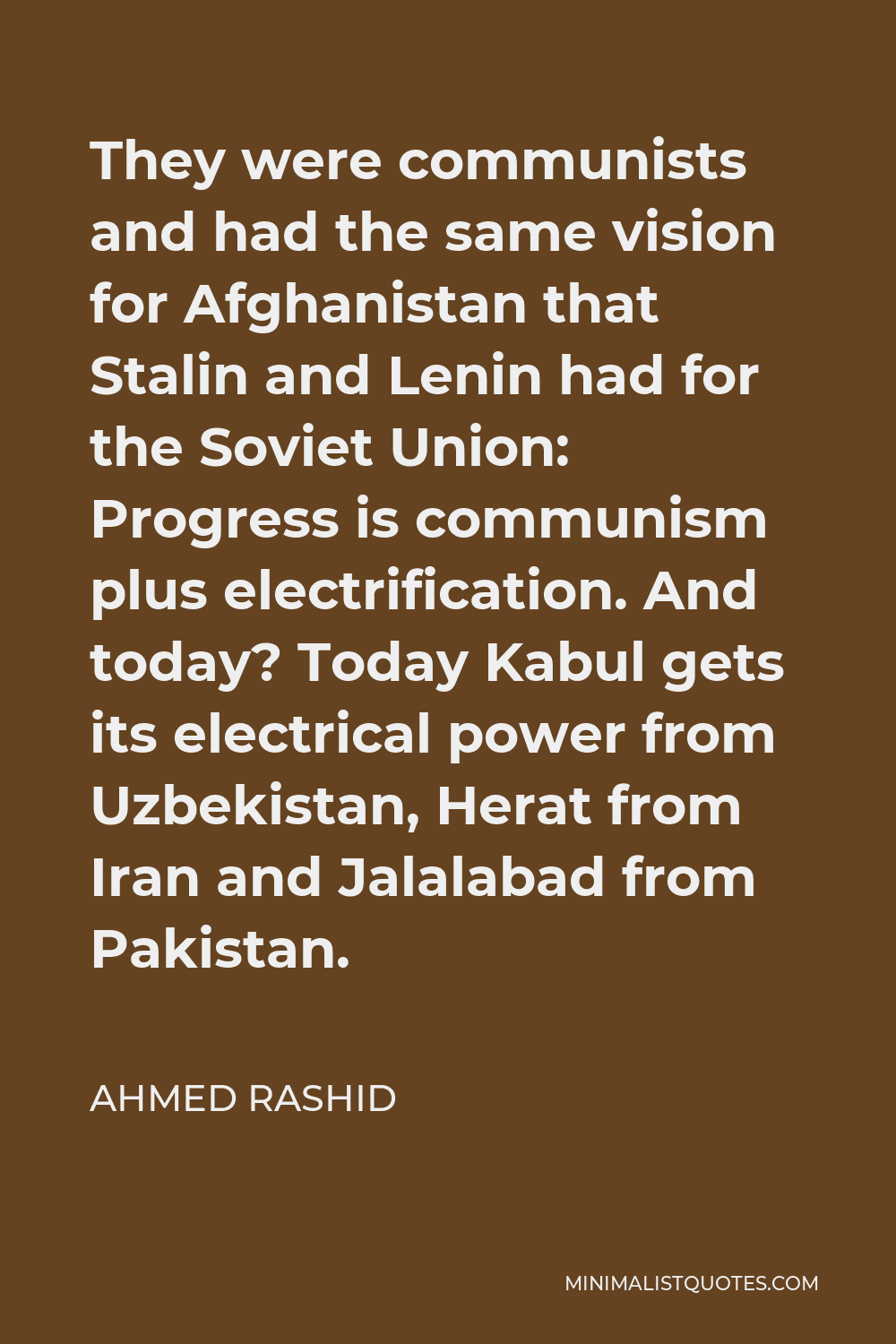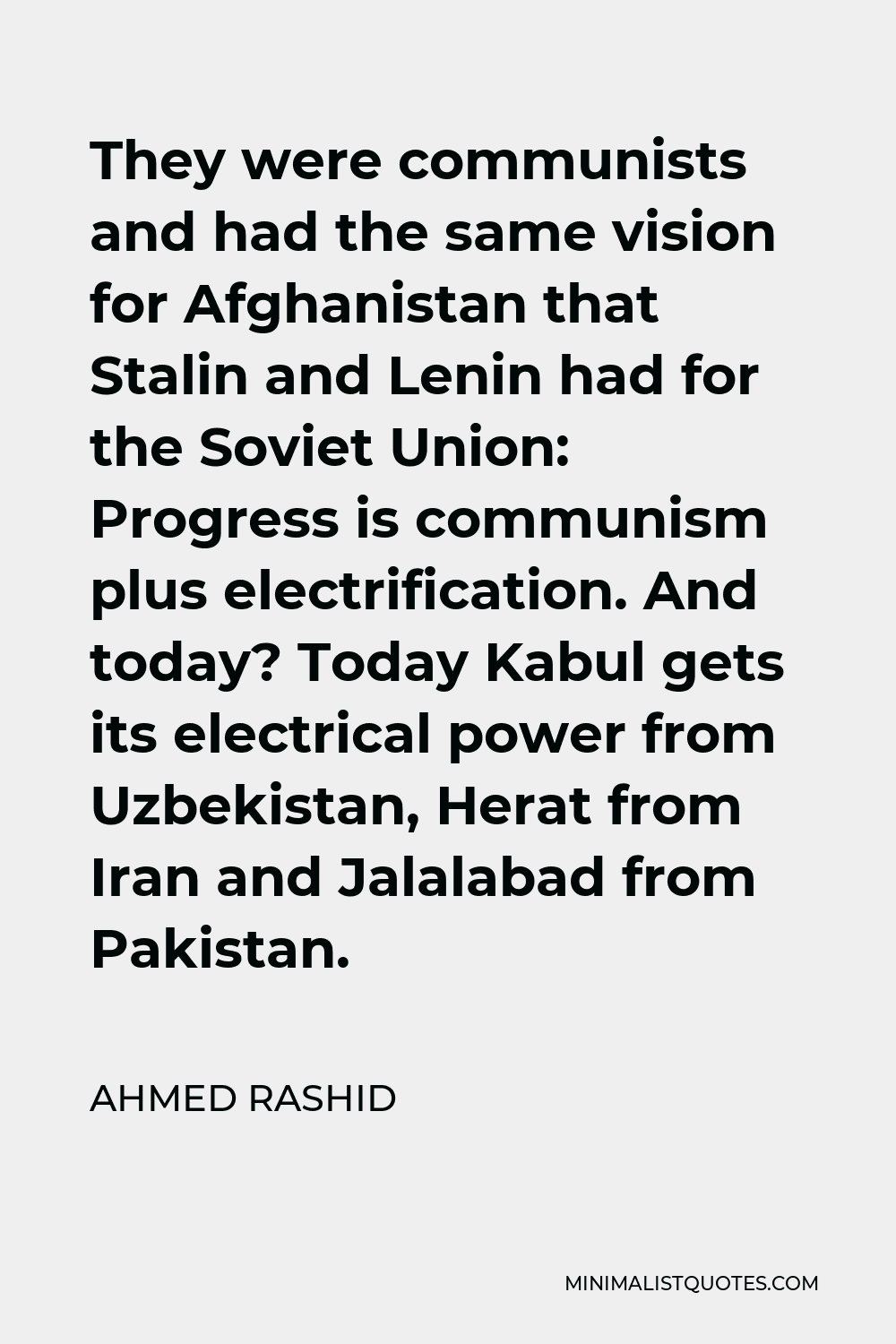Our Pakistan elites are spoiled by permanent foreign aid and therefore find it difficult to change course. Pakistan needs someone who stands up and says: Fundamentalism is bad, capitalism is good.
AHMED RASHIDThey were communists and had the same vision for Afghanistan that Stalin and Lenin had for the Soviet Union: Progress is communism plus electrification. And today? Today Kabul gets its electrical power from Uzbekistan, Herat from Iran and Jalalabad from Pakistan.
More Ahmed Rashid Quotes
-





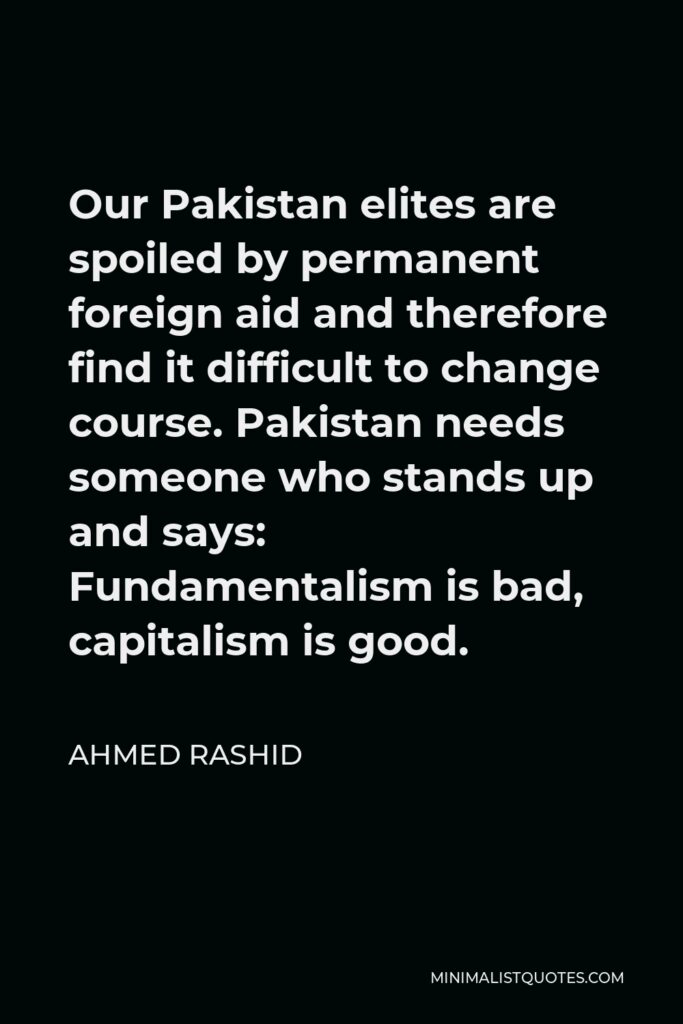

-





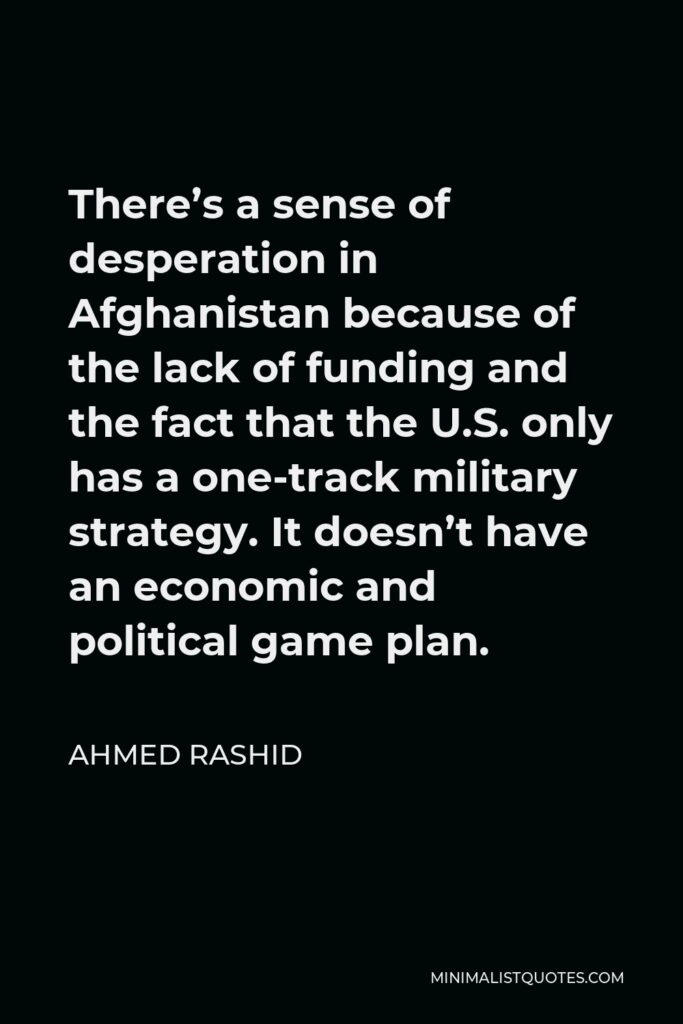

There’s a sense of desperation in Afghanistan because of the lack of funding and the fact that the U.S. only has a one-track military strategy. It doesn’t have an economic and political game plan.
AHMED RASHID -







The fact that there are no longer large units of Al Qaeda running around means you don’t need B-52s.
AHMED RASHID -





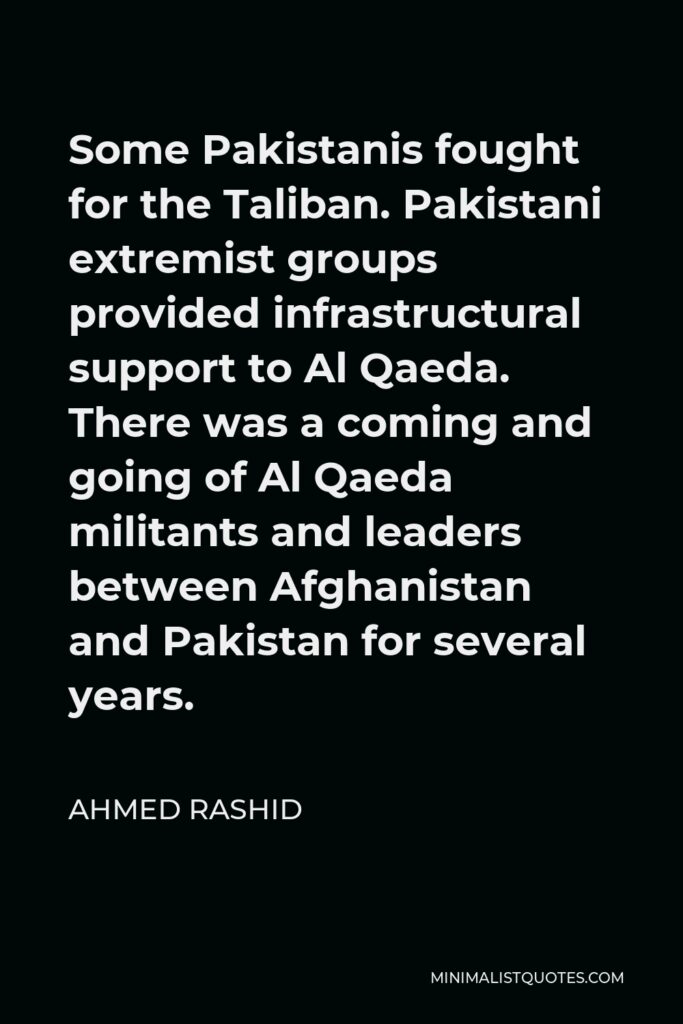

Some Pakistanis fought for the Taliban. Pakistani extremist groups provided infrastructural support to Al Qaeda. There was a coming and going of Al Qaeda militants and leaders between Afghanistan and Pakistan for several years.
AHMED RASHID -





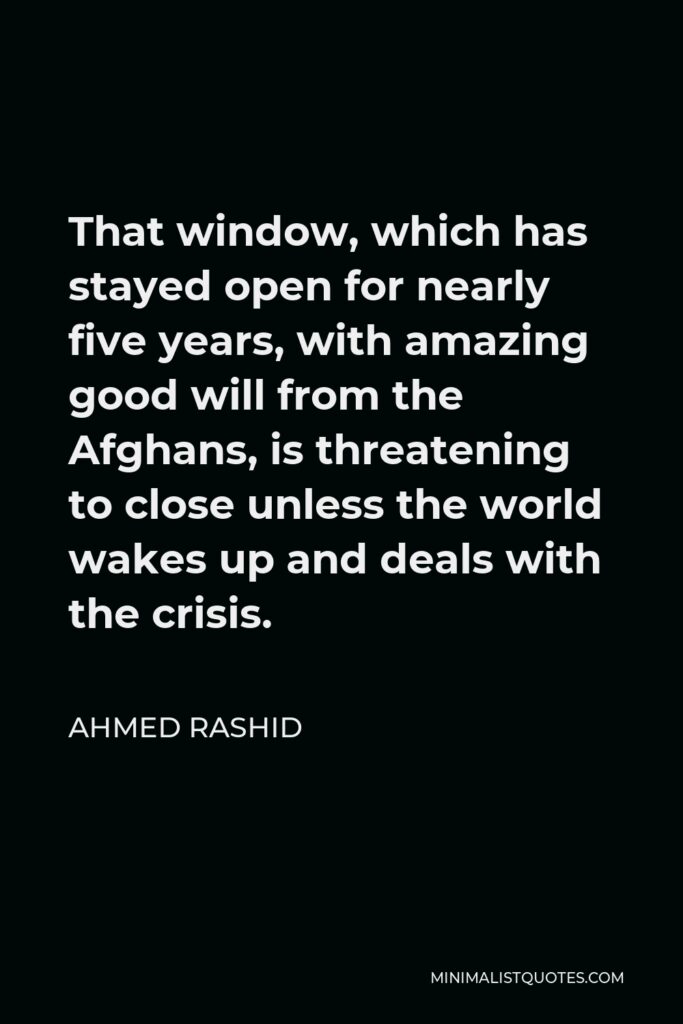

That window, which has stayed open for nearly five years, with amazing good will from the Afghans, is threatening to close unless the world wakes up and deals with the crisis.
AHMED RASHID -





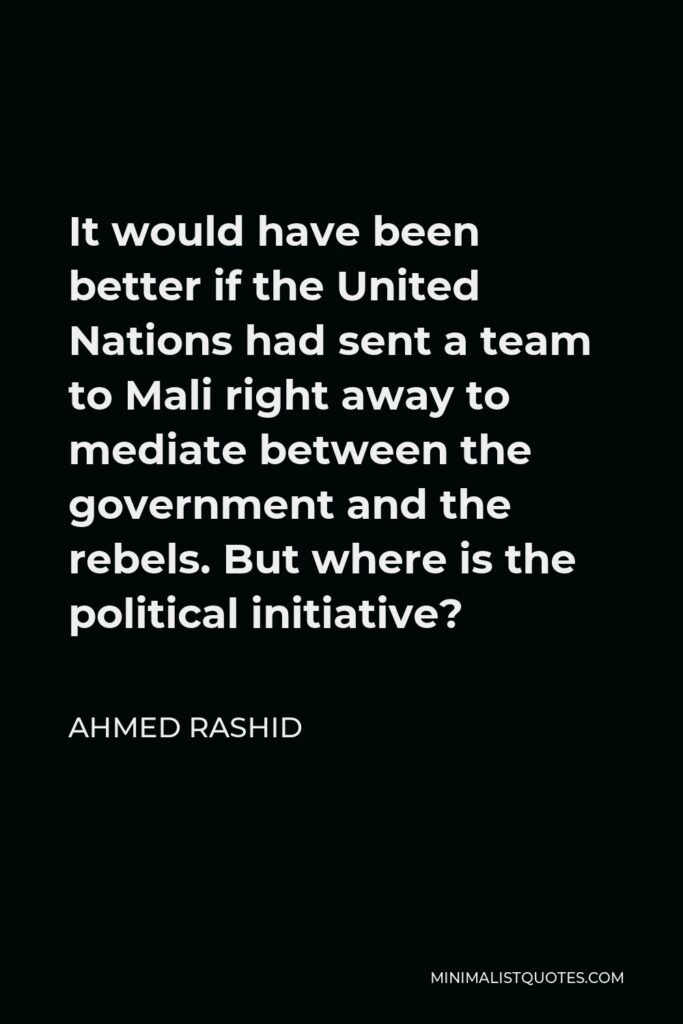

It would have been better if the United Nations had sent a team to Mali right away to mediate between the government and the rebels. But where is the political initiative?
AHMED RASHID -





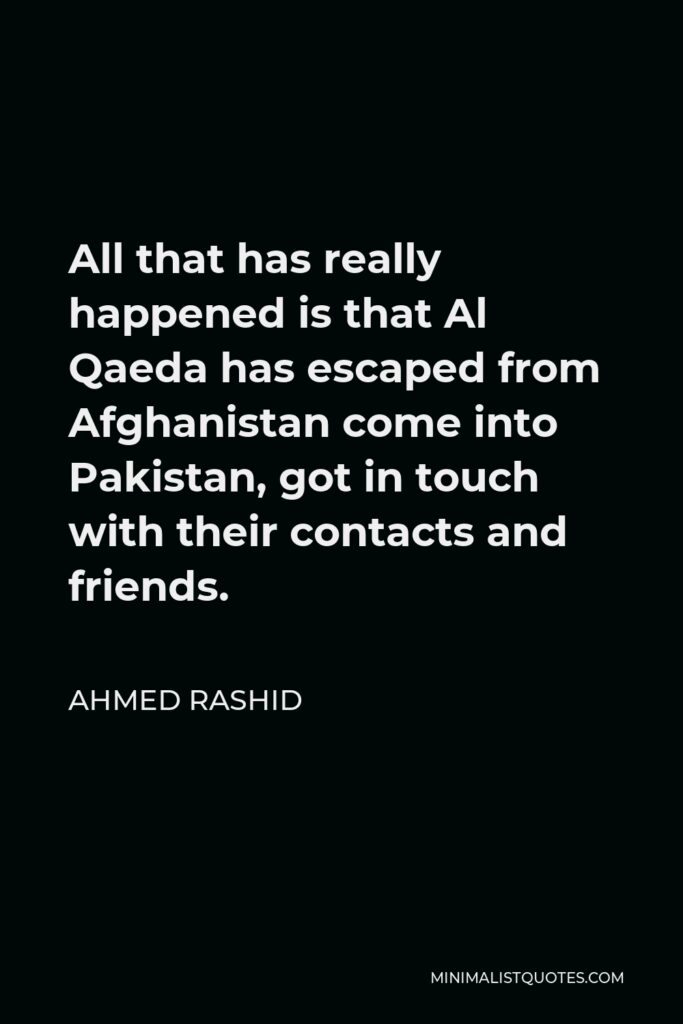

All that has really happened is that Al Qaeda has escaped from Afghanistan come into Pakistan, got in touch with their contacts and friends.
AHMED RASHID -





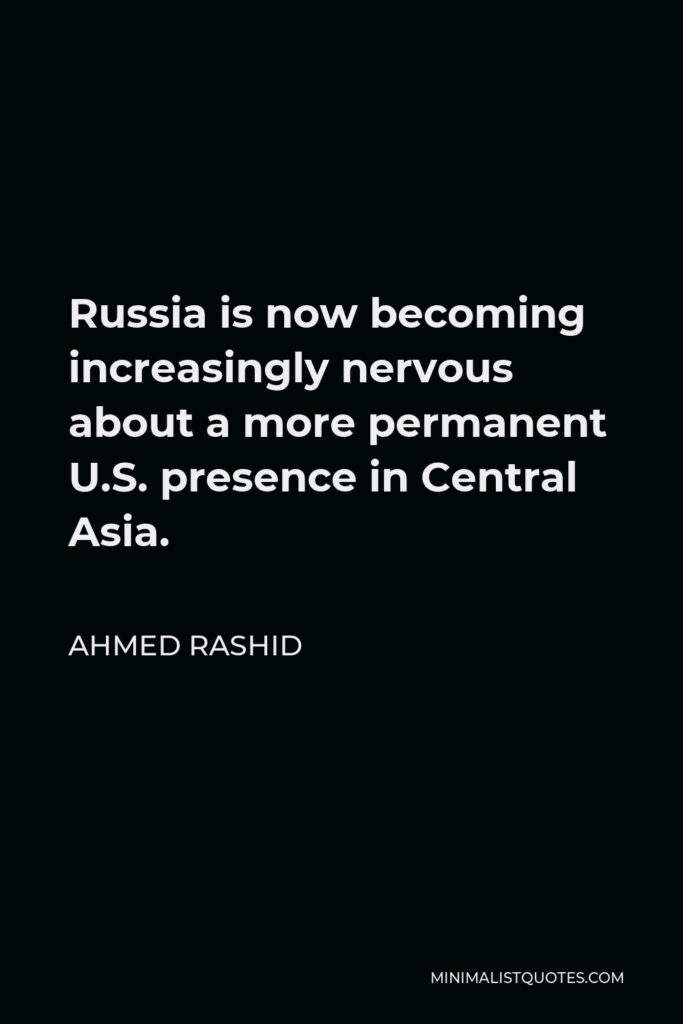

Russia is now becoming increasingly nervous about a more permanent U.S. presence in Central Asia.
AHMED RASHID -





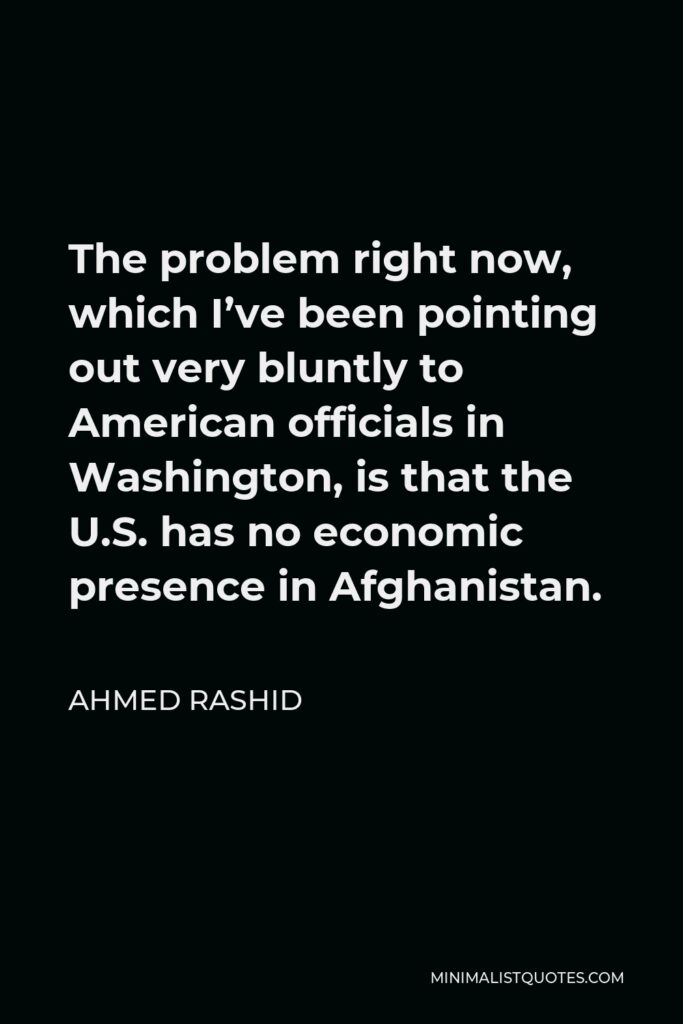

The problem right now, which I’ve been pointing out very bluntly to American officials in Washington, is that the U.S. has no economic presence in Afghanistan.
AHMED RASHID -





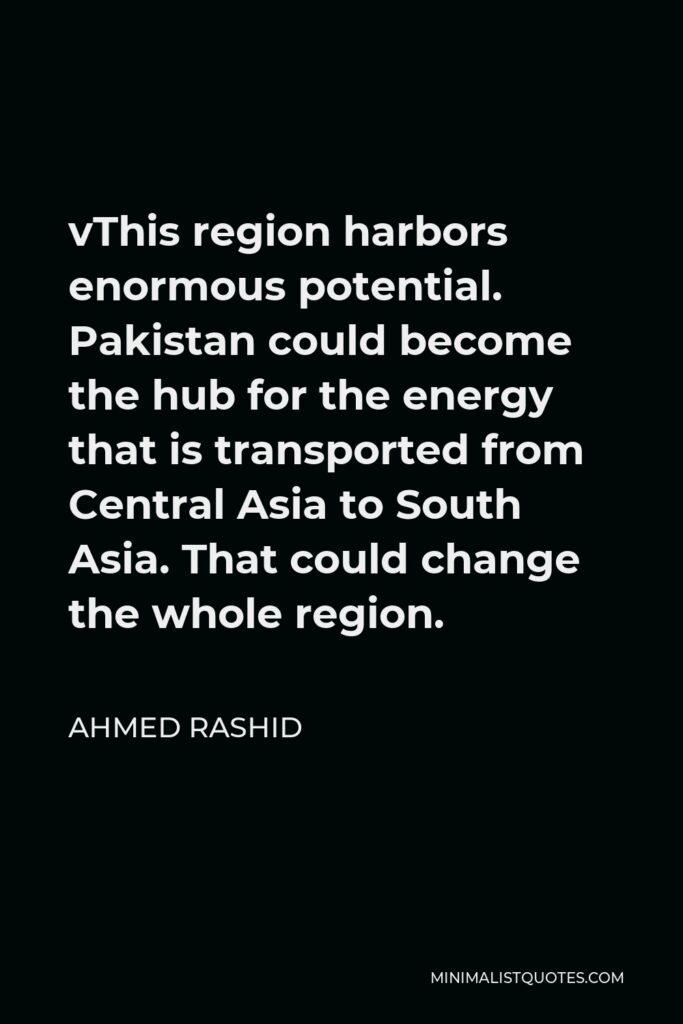

vThis region harbors enormous potential. Pakistan could become the hub for the energy that is transported from Central Asia to South Asia. That could change the whole region.
AHMED RASHID -





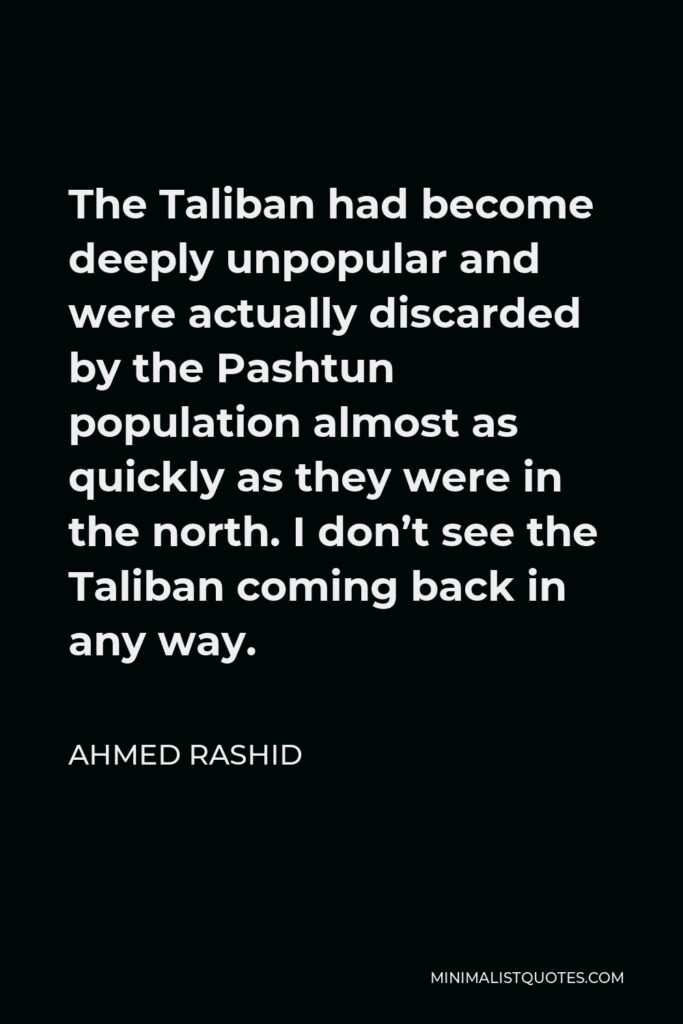

The Taliban had become deeply unpopular and were actually discarded by the Pashtun population almost as quickly as they were in the north. I don’t see the Taliban coming back in any way.
AHMED RASHID -







We never had reports of Mullah Omar living luxuriously or making money in large quantities or anything like that.
AHMED RASHID -





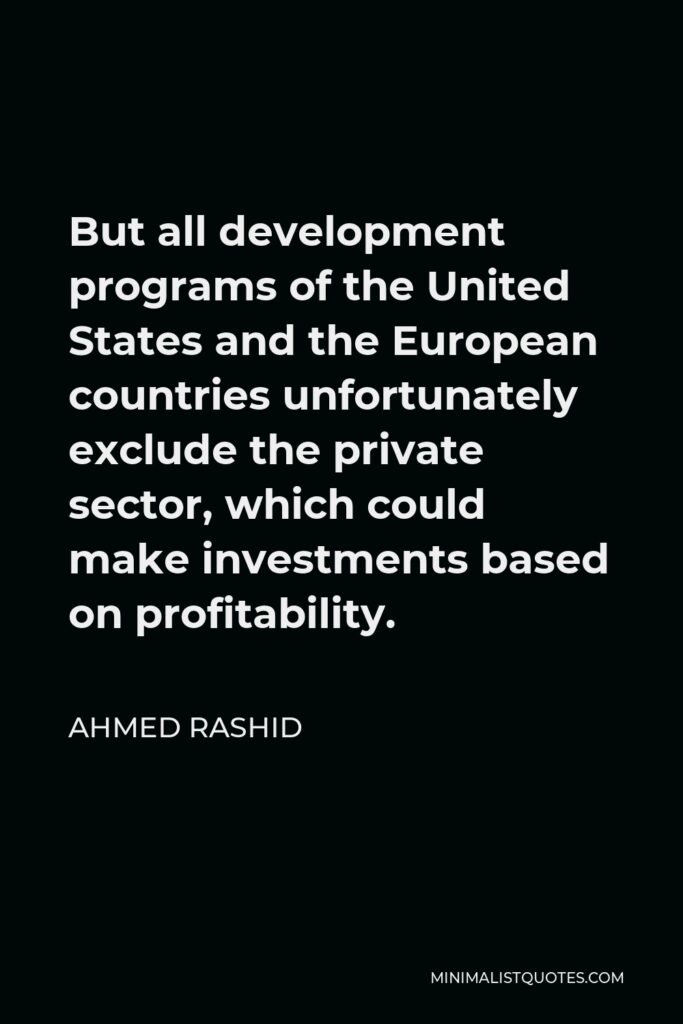

But all development programs of the United States and the European countries unfortunately exclude the private sector, which could make investments based on profitability.
AHMED RASHID -





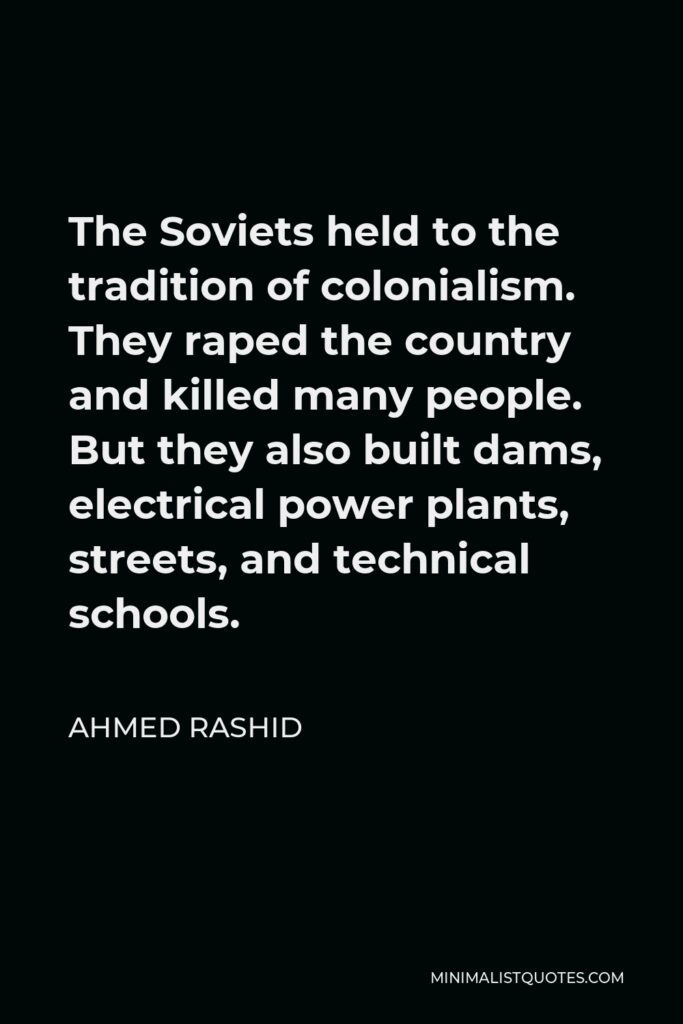

The Soviets held to the tradition of colonialism. They raped the country and killed many people. But they also built dams, electrical power plants, streets, and technical schools.
AHMED RASHID -





![Ahmed Rashid Quote - [Mullah Omar] gave himself this religious title. So it was something that all those people there who swore an oath of loyalty to him as a religious leader could not easily get rid of.](https://minimalistquotes.com/wp-content/uploads/2022/07/mullah-omar-gave-himself-this-religious-title-so-i-683x1024.jpg)

[Mullah Omar] gave himself this religious title. So it was something that all those people there who swore an oath of loyalty to him as a religious leader could not easily get rid of.
AHMED RASHID -





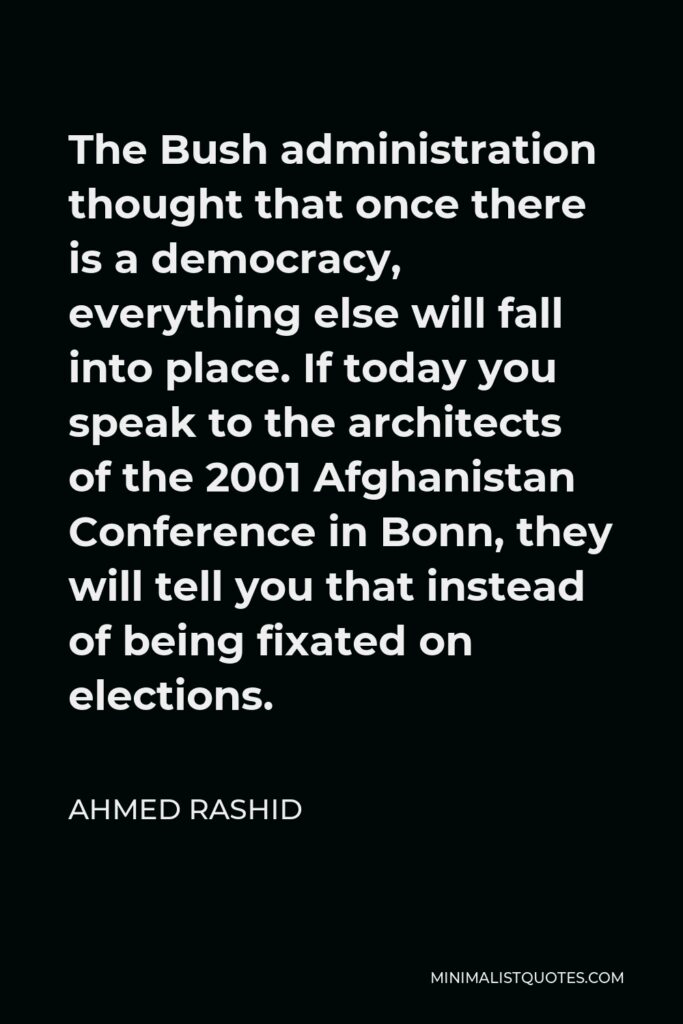

The Bush administration thought that once there is a democracy, everything else will fall into place. If today you speak to the architects of the 2001 Afghanistan Conference in Bonn, they will tell you that instead of being fixated on elections.
AHMED RASHID
